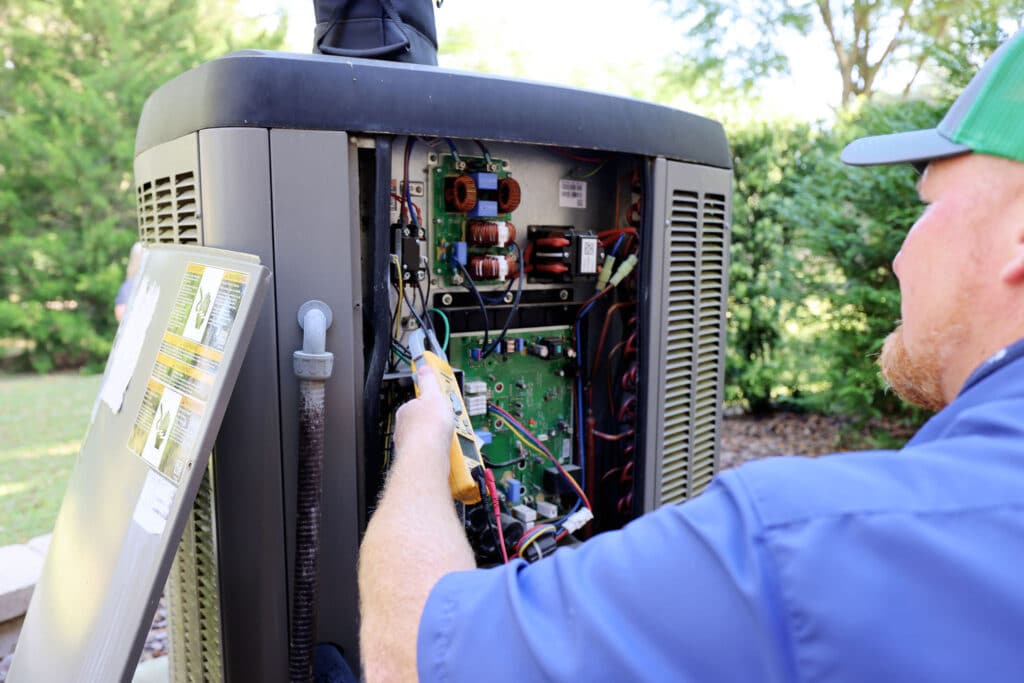Trust Your Chiller Maintenance to the Comfort Temp Team
Your commercial chiller is a complex machine that cools and dehumidifies your space. It effectively prevents heat accumulation that results in equipment failure in your industrial processes. A chiller is also likely one of your most costly and largest electricity use assets. Chiller maintenance requires professional maintenance services to ensure it runs efficiently to avoid breakdowns while extending the life of the unit.
How Does Your Chiller Work?
A chiller enables heat transfer through thermodynamic processes in each of its four main components – the evaporator, compressor, condenser, and expansion device. The chiller’s essential result is applying coolant to the process water system’s cold side, after which it maneuvers throughout the system, removing heat as it flows back to the process system’s return side.
Chiller systems are known to use substantial amounts of energy to operate. Regular chiller maintenance can prevent your unit from overworking while saving you money on your building’s energy costs. Still, while there are a few tasks you can do yourself to maintain your chiller, most require certified technicians.
DIY Maintenance
To be proactive, you can keep a daily performance log. Keep an ear out for any unusual vibrations or sounds. You can also perform visual inspections for any debris, excess condensation, or fluid leaks. But if your chiller displays error codes, do not delay in calling for professional maintenance. Not only could attempting difficult maintenance tasks yourself fail and irreparably damage your unit, but you may also void a manufacturer warranty, leading to debilitating costs.
Professional Maintenance
Condenser Coils
Due to its interaction with water, condenser coils are prone to breeding mold or bacteria growth. To maximize heat transfer, air quality, energy efficiency, and the life of your unit, coils should be inspected and cleaned regularly – with a brush at least once annually – to verify that they remain clog-free and that air can pass freely through. The fan motor currents, refrigeration temperature, and air intake and exhaust temperature should be included in these inspections.
Refrigerant Charge
Your chiller’s efficiency relies on maintaining appropriate refrigerant charge levels, and an insufficient charge can overwork the unit compromising its cooling output. Knowing the proper refrigerant charge can be confusing and dependent on which system you have and many complicated measurements and calculations best left to professionals.
Condenser Water
Water should be tested and treated to prevent bacteria, scale, debris, and corrosion, as these negatively impact the condenser’s functionality. Chilled water loops should be checked at least once per year to ensure they are free of any biological contaminants.
Compressor
Your chiller’s compressor acts as its pump. It utilizes pressure differentials to move liquid through your system. This component’s maintenance should include checking oil levels and pressure, suction and discharge temperatures and pressure, and current voltage levels.
Chiller Maintenance Services With Comfort Temp
For the necessary maintenance that your chiller’s elaborate system needs to run correctly, trust our Comfort Temp experts. We have spent 35 years keeping North Central Florida’s chillers operating optimally and will do the same for you and your business with our thorough and professional services. Whatever your chiller needs, contact us today!
